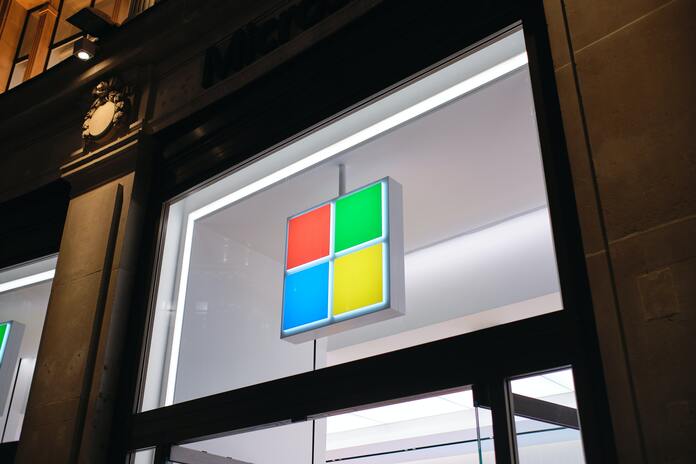Microsoft Stock (NASDAQ:MSFT)
A judge in the United States has issued a temporary block on the anticipated acquisition of Activision by the technology giant Microsoft. This turn of events comes as something of a surprise. Both companies as well as the various stakeholders in each of them are in a state of uncertainty as a result of this decision, which has caused shockwaves to be sent throughout the gaming industry. In this piece, we will delve into the background of this major turning point and investigate the potential repercussions that it may have for both Microsoft and Activision in the years to come.
Late on Tuesday night in the United States, a judge granted the request of the Federal Trade Commission (FTC) to temporarily block Microsoft Corporation’s (NASDAQ:MSFT) acquisition of video game developer Activision Blizzard (NASDAQ:ATVI). The judge also scheduled a hearing for the following week.
A two-day evidentiary hearing on the FTC’s request for a preliminary injunction is scheduled to take place in San Francisco on June 22-23, according to the schedule set by U.S. District Judge Edward Davila. Even in the absence of an order from the court, Microsoft could have completed the $69 billion transaction as early as Friday.
At the beginning of December, the FTC, which is in charge of enforcing antitrust law, made a request to an administrative judge to halt the transaction. On August 2, there will be a hearing for the evidentiary portion of the administrative proceeding.
On the basis of the hearing that will take place in late June, the federal court will decide whether or not it is necessary to issue a preliminary injunction, which would remain in effect during the administrative review of the case. On Monday, the FTC filed a request for the temporary block.
The temporary restraining order that was handed down on Tuesday, according to Davila, “is necessary to maintain the status quo while the complaint is pending (and) preserve this court’s ability to order effective relief in the event that it determines a preliminary injunction is warranted and preserve the FTC’s ability to obtain an effective permanent remedy in the event that it prevails in its pending administrative proceeding.”
Microsoft and Activision have until June 16 to submit their legal arguments against a preliminary injunction, and the FTC has until June 20 to provide a response.
Activision, which on Monday referred to the FTC’s decision to seek a federal court order as “a welcome update and one that accelerates the legal process,” chose not to comment on the matter on Tuesday.
On Tuesday, Microsoft released a statement in which it stated that “accelerating the legal process in the United States will ultimately bring more choice and competition to the gaming market.” It makes perfect sense to get a temporary restraining order until we can receive a decision from the court, which is moving very quickly.
The Federal Trade Commission declined to comment.
According to Davila, the prohibition on closing will continue to be enforced for at least five days after the court issues its decision regarding the request for a preliminary injunction.
The Federal Trade Commission has argued that the transaction would give video game consoles made by Nintendo (7974.T) and Sony Group Corp’s (6758.T) PlayStation no access to Activision games, which would leave Microsoft’s Xbox as the only option for gamers.
The European Union gave its stamp of approval to Microsoft’s acquisition bid for the “Call of Duty” video game developer in May, but the takeover was blocked by British competition authorities in April.
Microsoft has stated that the deal would be beneficial to gamers as well as gaming companies, and the company has offered to sign a legally binding consent decree with the FTC to provide “Call of Duty” games to competitors for a period of ten years, including Sony.
The Expansion Strategy Adopted by Microsoft
Over the past few years, Microsoft has made a concerted effort to significantly broaden its presence in the gaming industry. The acquisition of Activision was seen as a strategic move by Microsoft to solidify its position as a leader in the gaming market. This was due in large part to the success of Microsoft’s Xbox gaming console as well as the growth of Microsoft’s Xbox Game Pass subscription service.
The Consequences That Might Arise
Microsoft’s plans have been complicated as a result of the temporary hold that has been placed on the acquisition. The company was hoping that the merger would improve its game development capabilities and give it access to Activision’s extensive library of popular franchises like World of Warcraft and Call of Duty. Without this acquisition, it’s possible that Microsoft will need to reconsider its approach to expansion in the gaming industry.
The Repercussions for Activision
Activision Faces a Degree of Ambiguity
Activision is also in a precarious position despite the fact that Microsoft is currently dealing with a setback. The business was on the verge of merging with one of the largest technology companies in the world, which would have given it access to significant resources and support for its future endeavors if the merger had been completed. As a result of the temporary block, Activision’s plans for the future are becoming less transparent.
The Response of Investors
The announcement of the temporary block had an immediate effect on the stock price of Activision, which experienced a significant decline immediately after the announcement was made. Investors are left wondering about the future of the company and whether it will continue to operate independently or seek alternative partnerships as a result of this recent development.
This case exemplifies the vigorous approach to antitrust enforcement that the administration of former Vice President Joe Biden took during his time in office.
Featured Image: Unsplash















